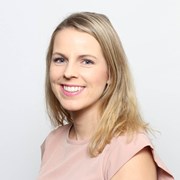"Communication platforms, such as Slack, support distributed teams by increasing team awareness and transparency by facilitating constant information sharing ", Dr. Viktoria Stray, Research Scientist in the department Software Engineering, Safety and Security in SINTEF Digital, says.
"Further, instant messaging tools increase feedback speed and facilitate network building, both internal in the team and externally. The tools support the awareness of who knows what and reduces the need for e-mail, she continues.
Together with Chief Scientist Dr. Nils Brede Moe, Stray won an award for Best Paper for their article "Understanding coordination in global software engineering: A mixed-methods study on the use of meetings and Slack" in the Journal of Systems and Software. The scientists have been researching distributed teams and how such teams coordinate for over ten years.
In their research they found that while unscheduled meetings are more valuable than scheduled meetings, organizations lack support for such meetings in distributed teams.
Dr. Stray and Dr. Moe's best tips for meetings in distributed organizations are:
1. Invite as few people as possible and make it clear whose participation is optional. The more participants, the shorter the time available for each to be active.
2. If you are the facilitator of a meeting, try to be an active chairperson. Address participants by name and involve everybody in the meeting.
3. Save time by arranging shorter meetings, and this will also make more time available for unplanned meetings.
4. Status meetings should be avoided if possible, and one-on-one meetings or brief written updates can replace them.


